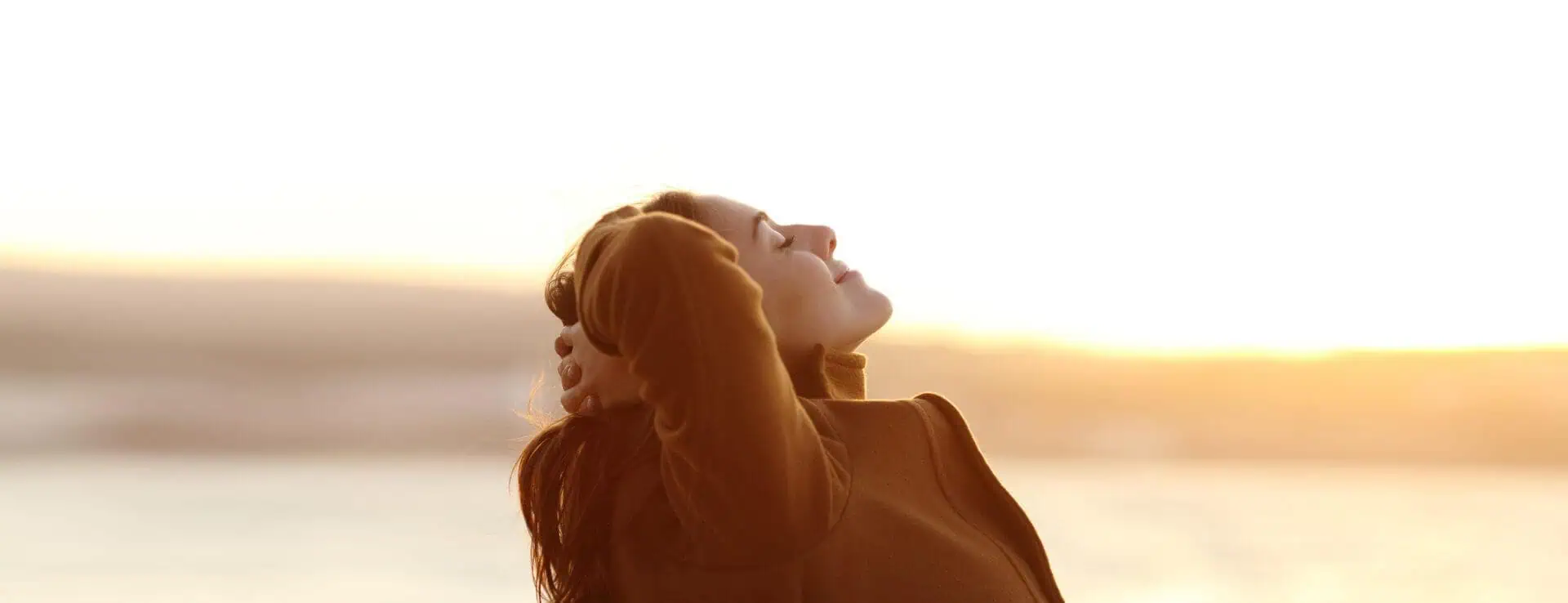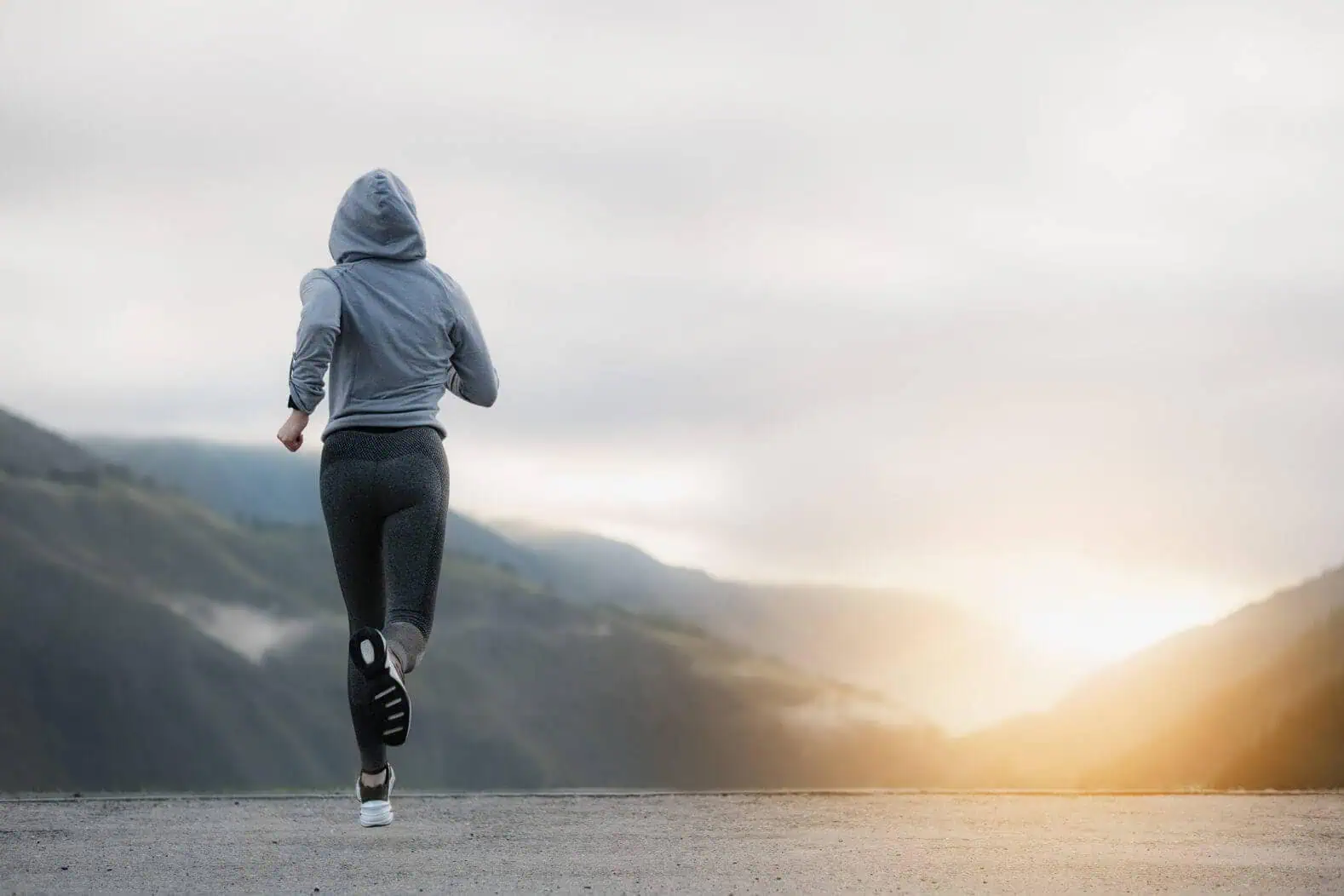Grit to be Your Best When You’re at Your Worst
Hi, I’m Dr. Chad Larson. This is the fourth installment in our series on grit. Just as a quick summary:
- The first one is about the Grit to Persevere.
- The second one is on the Grit to Control Your Thoughts.
- The third one is the Grit to Master Fear.
- Today’s series is on the Grit to be Your Best When You are at Your Worst
Grit to Persevere
Our first episode was about the grit to persevere, and the way to build mental perseverance is to practice it with physical perseverance. That can be taking a little bit longer walk than you’re used to. Or if you work out with weights, maybe make the weights a little heavier, or do one or two extra repetitions. In this way you’re building the neurobiology, building the energy in your system, so that when you ask your your body to do whatever difficult task is at hand or whatever new thing you’re trying to learn, you’re telling your brain that you’re going to have that needed extra energy when the time comes.
Because like we talked about in that episode, your brain is a maniacal accountant of energy based on what you’ve been doing in the past and the types of calories that you’re consuming. It’s keeping track of every bit of energy and it constantly tries to create that homeostatic setpoint. So if we’re asking our brain to do something new, something difficult, we need to have trained our neurobiology to expect that this is going to happen. This really helps to ensure our success with whatever new thing or hard task we’re trying to do. That’s the grit of perseverance.
Grit to Control Our Thoughts
Next there’s the grit to control our thoughts, and this is all about being able to pay attention to the things that we’re trying to focus on and to ignore the things that are trying to pull our attention away. I talked about some specific skills that we can develop to build that grit skill.
Grit to Master Fear
And the third type of grit is the grit to master fear. As I explained before, you really should do these in the right order. So mastering fear would come next because fear is a great tool for developing focus. As Steven Kotler says, fear gives us focus for free. Remember, the brain is a maniacal accountant of energy. So if we’re asking it to do something new, we can deliberately put ourselves in a certain type of situation where we’re doing something that creates a little bit of fear in the system. This enables you to focus on it and use that grit skill to develop that attribute. It’s a really efficient way to help you focus and drive your attention to what you’re trying to work on, and to prevent your attention from being pulled in another direction.
Grit to be Your Best When You’re at Your Worst
So that brings us to today’s grit skill, which is the grit to be your best when you’re at your worst. What that means is, there will inevitably be obstacles along the way to learning something new or doing a hard task. It’s just going to happen, whatever the thing is that you’re working on. Maybe you need to have a difficult conversation with a family member or colleague. Or maybe you’re adopting a new diet or lifestyle. Because, you know, burning fat when you have a typical American diet and lifestyle, that’s kind of hard. Sticking to New Year’s resolutions, that’s kind of hard.
There are going to be obstacles in the way, but we can increase our chance of success by building these grit skills. You want to prime your neurobiology to be able to deal with those inevitable and predictable obstacles, because they’re for sure gonna show up. And there are things we can do to be our best when we’re at our worst. There’s a way to train for these expected hurdles.
Just as an example, say you have to give a speech or a presentation at work. One way you can support and build your neurobiology to be able to perform that difficult task is to make yourself practice the task when you’re taxed. Maybe you go for a walk and you’re hiking up a steep hill, and that’s when you work on your presentation. As you’re going up that hill, you’re putting yourself in a deficit. You’re tired, you’re out of breath, and now you’re practicing your presentation. In this way you’re building that skill. You’re building the neurobiology to say, when I have to do something difficult, I need this neural chemistry to show up and help me to do that task.
-Dr. Chad Larson
Make Small Changes
Oftentimes, I’ll put my patients on some challenging diets, and there are ways that we can take baby steps so we can prove to their brain and prove to their physiology that they can do it and then take it to the next level. For example, I might put somebody on a diet because they’ve got metabolic syndrome, they’re overweight, they might even have prediabetes and I want to help them with their blood sugar metabolism. So what I might do is increase their overnight fasted period.
So let’s say normally they have their last snack at 9:30 pm and then they eat for the first time each day at 6:30 in the morning. That’s not really enough time for the body to burn the proper amount of glucose in the system, so they already have an excess of glucose. I’m trying to increase that fasted period overnight, so I might have them go 12 hours fasting overnight, then 13 hours or 14 hours. And we can start to work on that in little bite-sized chunks.
Build a Skill Slowly
When I was going through reversing my own metabolic syndrome, what would happen to me at night, and I don’t know if this happens at your house, but there’s a gravitational pull that seems to come from the kitchen at night. The pull for me became a lot stronger at night and all of a sudden, I’m in the kitchen eating something and I don’t even know how I got there. And there’s a way that we can tackle things like this in bite-sized chunks.
One of the things I did when I was getting that feeling was I’d make some hot tea and just sip on some tea as a way to avoid eating something in the kitchen. Then I could do that 13 or 14 hour overnight fast, and I woke up the next day and went, “ah, I didn’t have that snack at night.” You string that together enough times, and this could be done in a bunch of different ways, but you show up in a way where you start to build that skill.
Move More
Another one is that sometimes you’re unmotivated to exercise, to go for a walk or go to the gym. What you can do to build this skill, this grit of being your best when you’re feeling your worst, is on those days that you feel totally unmotivated, put on your shoes, put on your workout clothes, go for a walk, go for a jog, whatever your thing is. What you’re doing is building that grit skill for whatever big life situation may come up. Maybe you’ve made a New Year’s resolution. Guess what. Those are kind of hard to stick with. If you’re trying to lose weight, if you’re trying to learn a new task, those obstacles are going to show up.
There will be days you’re going to feel not so good. You’re going to feel unmotivated. You’re going to be tired because maybe you worked all day and you just don’t feel like working on it. There are little ways we can take those into kind of bite-sized chunks and build up that grit skill over time. Because the obstacles are inevitable. They show up for everybody. But instead of just trying to rely on willpower, we can develop this as a skill over time. Then when those things show up, our brain and our neurochemistry are ready to overcome them. This is kind of an uncomfortable grit skill to train because you don’t feel good. But that’s the only way to build a skill. You have to do something that you don’t feel up to doing. But if you do it enough times and you show up enough times, then you’re ready for the bigger things that life might throw at you.
So after this one, I’ll be bringing you two more installments in our series on grit. And I will keep reading the studies and bringing you the information. Until then, keep it real.
Recommended Products:







